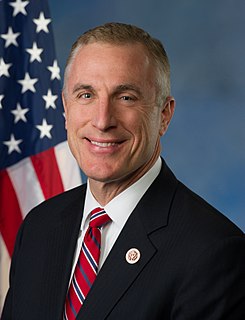A Quote by Abigail Spanberger
To help inform my work in Congress, I consistently need to gather information about the healthcare challenges facing Central Virginia patients, providers, and local officials on the ground.
Related Quotes
In Central Virginia, we've seen firsthand how telemedicine is playing a critical role in keeping seniors, families, and veterans connected to their healthcare providers during the COVID-19 crisis. Without this lifeline, thousands of Central Virginians could be left without access to routine appointments and lifesaving care.
A central notion in the Affordable Care Act was we had an inefficient system with a lot of waste that didn't also deliver the kind of quality that was needed that often put health care providers in a box where they wanted to do better for their patients, but financial incentives were skewed the other way... We don't need to reinvent the wheel; you're already figuring out what works to reduce infections in hospitals or help patients with complicated needs.
We should listen less to the opinions of those who either overtly promote or stubbornly reject complementary and alternative medicine without acceptable evidence. The many patients who use complementary and alternative medicine deserve better. Patients and healthcare providers need to know which forms are safe and effective. Its future should (and hopefully will) be determined by unbiased scientific evaluation.
Cerner's focus over the last 20 years has been to provide healthcare, predominately healthcare providers, with advanced clinical and management information systems. Our mission is to connect the appropriate persons, knowledge, and resources at the appropriate time and location to achieve the optimal health outcome.
If children are hungry, they need to be fed. It's hard to learn if your stomach is growling. We need to take that on. If students can't see the blackboard, need eyeglasses, we need to do that. If students need a social worker or counselor to work through the challenges they're facing at home in the community, we need to do that.
If policy makers and program managers participate in an interdisciplinary assessment team, make informal visits to local families and have in-depth conversations with local providers and health authorities, the real needs and complex challenges of organizing good reproductive health services become apparent.































